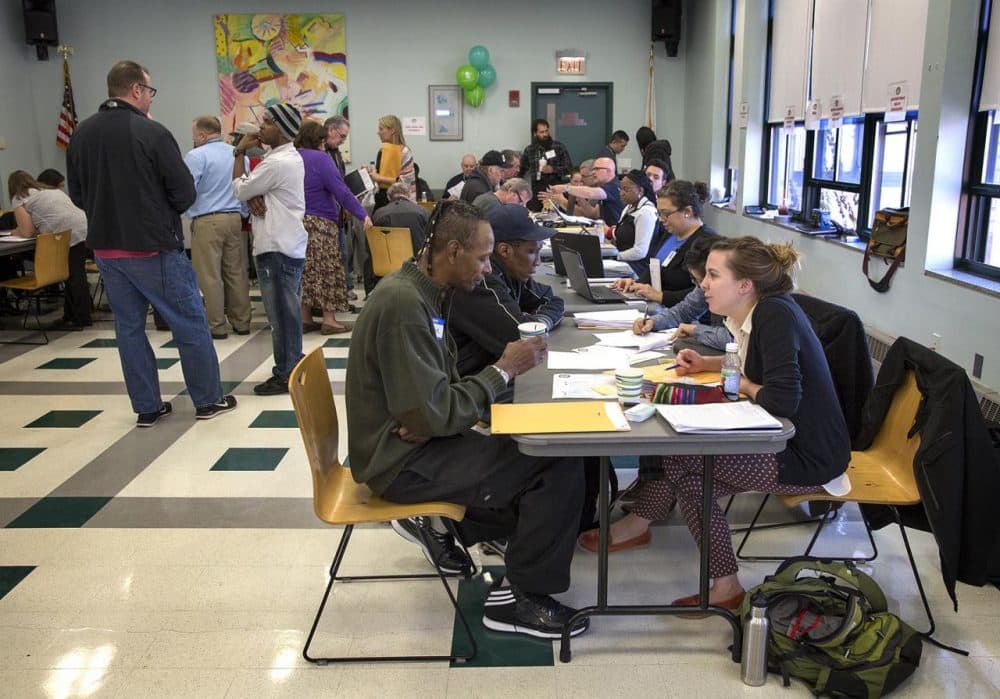Advertisement
Boston Makes Major Progress Toward Ending Veteran Homelessness

The city of Boston says it's made a huge dent in its mission to end homelessness among veterans, but there's still work to do.
Since the Boston Homes for the Brave program launched in July 2014, 533 homeless veterans who were in emergency shelters have been placed in permanent housing, according to Sheila Dillon, director of the city's Department of Neighborhood Development. The goal of the program was to eliminate veteran homelessness in the city by the end of 2015.
As of Monday, 79 veterans remained in Boston's emergency homeless shelters. Twenty-five of them are considered "chronically homeless," many of them due to mental illness and addiction, Dillon said. Success will mean no vet stays in shelter for long, she added.
When the program started, there were 414 homeless veterans in Boston.
"Homeless vets are coming into the system basically one per day," Dillon explained, adding that some come from out of state because of the services available here. "So our goal is to meet them at the door, find out what they need, and then get them back on track as quickly as possible."
The Homes for the Brave program is a joint initiative between city, state and federal veterans and housing agencies, local homeless shelters and other advocates. The program not only houses veterans, but connects them with support services, including counseling and job search assistance.
In June of last year, Mayor Marty Walsh also launched an action plan not only to end veteran homelessness in the short time frame, but to end all chronic homelessness in the city by 2018.
The partner agencies coordinating the Homes for the Brave initiative hold weekly meetings to discuss each veteran who's homeless in Boston. Previously the response was much more fragmented, and veterans often languished in shelters.
"We know every veteran who's in the system, how long they've been there, what their housing needs are, and we go through the list every single week ... making sure that we're making progress," Dillon said.
She didn't have an exact count of how many vets had been housed and then became homeless again.
"The support services are very, very good. So we're seeing less homeless vets enter back into the system," Dillon said. "It does happen. But once again, it's on us to find out what didn't work, what did we not see initially, and make sure those needs are met."
The program's leaders have sponsored one-stop-shopping type events, at which homeless veterans are able to meet with representatives from local, state, federal and private agencies to work on securing rental assistance vouchers, explore their VA benefits, and connect with other resources.
Pine Street Inn's president and executive director, Lyndia Downie, said those heading up the initiative have been "laser-focused" on getting the vets housed.
"That's a huge reduction," Downie said, referring to the 533 veterans placed in housing. "Do I wish it was [down to] zero? I do. But the reality is we haven't figured out how to stop all vets from becoming homeless. I think ideally you would hope that the VA and other systems that are out there to support vets can kind of catch them before people have to drop down into this safety net ... but that's not always the case."
Some of the veterans have been housed in permanent housing units owned or managed by Pine Street, which feature traditional leases.
Downie said the average length of stay for veterans in the emergency shelter has been reduced by 25 percent, to about three to four months, since the new initiative started.
